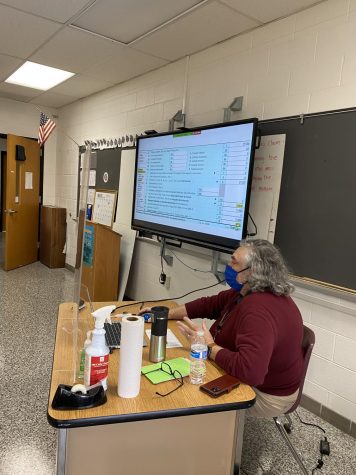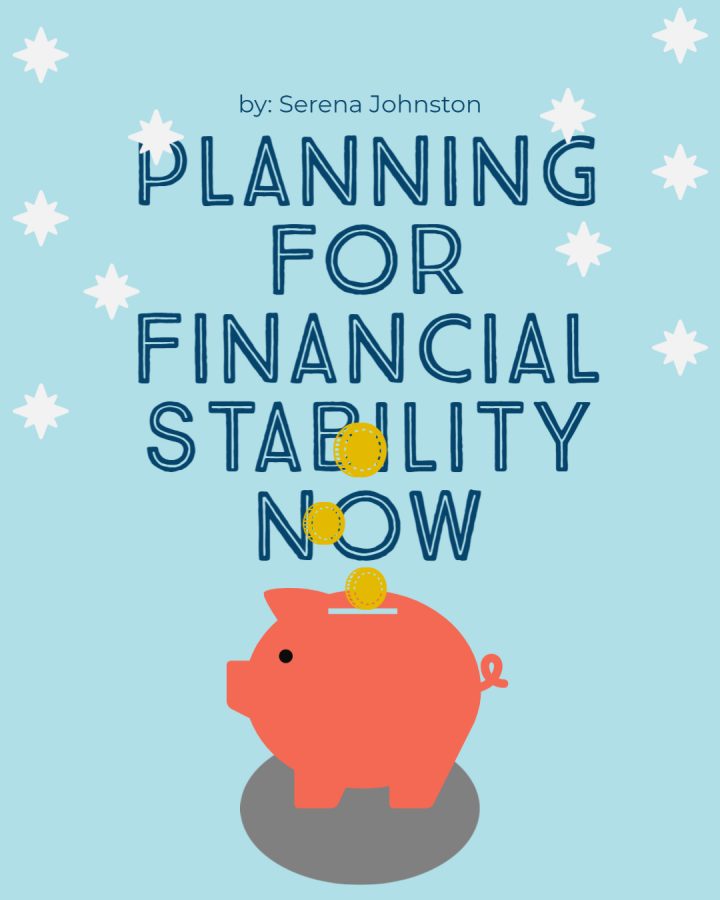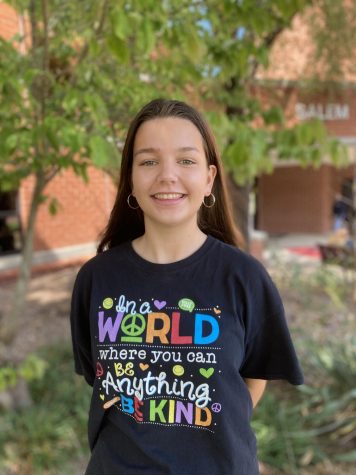Planning for financial stability now
Economics teachers Mrs. Hope Costanza and Mr. Rudy Van Oekel share advice on how to make good financial decisions
March 17, 2021
Being a teen can be stressful. Teens are on the doorstep of adulthood and one of the most common worries about becoming an independent adult is money and financial stability. Our teen years are not too early to start thinking about financial independence.
“Start saving for your future now!” said economics teacher Hope Costanza. “Don’t wait because time is on your side.”
Some of us have been learning the basics of saving since we got our first piggy bank, but as we get older, the items we need (or want) become a lot more expensive.
Economics teacher Rudy Van Oekel warns against the desire to “keep up with the Joneses,” which generally refers to buying something that another person or group of people have to make yourself seem cooler. For example, your friend gets a new iPhone so you feel like you need to also.
“Keeping up with the Joneses can wreck your budget and your life,” said Van Oekel.
A way to prevent falling into the keeping up with the Joneses trap or spending money on unnecessary items is to set goals for what you want to buy in advance and stick to those goals. Don’t get side tracked based on what other people buy or what might happen to be “cool” in the moment.
Of course before we can save or spend money we must earn money. Older students generally get jobs if they want to earn money, but younger students may struggle to earn money to save or spend. They may rely on an allowance or birthday and Christmas money, but that doesn’t mean they can’t still save and put their money to work for them.
“It’s a smart idea to try to put extra money in a Certificate of Deposit,” said Costanza. “CD’s are a great starting point.”
A CD is a means of making more money on savings than you would with just a savings account. The difference is that you choose a set amount of money ($2,000 for example) and that money is kept by the bank for a certain amount of time at a certain interest rate. You can’t access that money until the term of the CD is up. To learn more about CD’s check out What are certificates of deposit? on investors.gov.
If you are working, Costanza recommends starting a ROTH IRA.
“Students can start investing with a ROTH IRA,” said Costanza “They would need to be working to do so, but they can be started with very little money.”
A ROTH IRA is a retirement account that you can withdraw from tax free at a certain age. The plus side is you can invest that money and not have to pay taxes on it in your future. That money sits in the account and grows for all the years you are working without you having to do anything and you can keep contributing to it so long as your income doesn’t get too high. The downside is that you can’t access that money until you are of retirement age. For more information on ROTH IRA’s check out What Is a Roth IRA? on investopedia.

Our world is a technological world, students often choose to keep an eye on their money through their phones. It’s easier because you can just see the little number pop up. But it’s not that simple.
“Not writing down your spending and just depending on your app to be correct is one of the biggest mistakes a person can make,” said Costanza. “Billions of dollars are spent in overdrafts every year because people don’t write down their expenses and subtract from their balance to really know how much they have in their account.”
Smart decisions now can have huge payoffs later.

